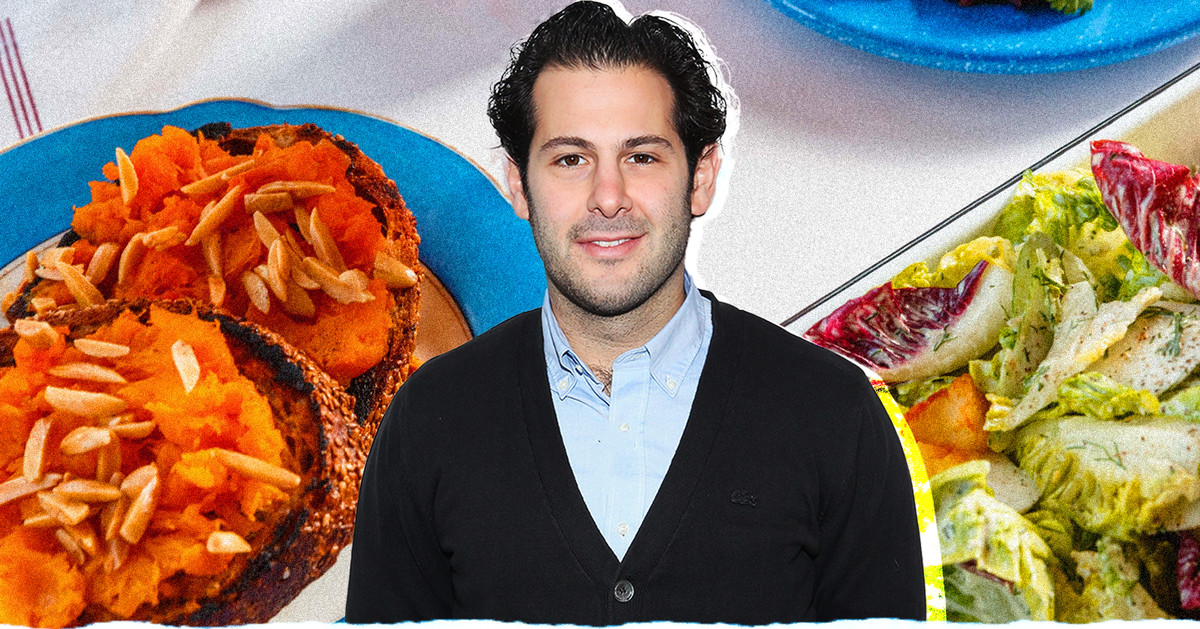
Consider the restaurant NFT: A digital asset few of us use and even fewer of us understand, sometimes ranging in price from a few hundred to a few thousand dollars. Like ancient talismans, they elicit a range of perks for their deep-pocketed owners, including priority reservations at the city’s hottest restaurants and entry to the Carbone at Hudson Yards, the more exclusive version of the original Carbone in Greenwich Village, which recently turned away Justin Bieber.
For a time, it seemed like most of us would never own a restaurant NFT. Now, all of us will, in theory.
Blackbird, a new restaurant loyalty program, pairs NFTs with VIP treatment, so even if you didn’t plan on owning a fancy digital asset this year, the company is banking on free food being enough to change your mind. The platform started this month at two New York restaurants, with several more to be trickled out in the coming weeks. Here’s the kicker: It comes from Ben Leventhal, one of the founders of Eater, who changed the way this city eats when he launched the reservation company Resy in 2014.
With Resy, Leventhal bet that diners wanted a better way to make online reservations — and won big. Blackbird is a different kind of gamble, that something as ethereal and sought-after as being a regular can be turned into an online object: A restaurant NFT.
“Blackbird is here to create meaningful connectivity between restaurants and their customers,” Leventhal wrote in a post on Substack earlier this month. “By connectivity, we mean direct connectivity, where guests know that the more they show up, the better their experience is going to be.” Leventhal declined to speak with Eater for this article.
:no_upscale()/cdn.vox-cdn.com/uploads/chorus_asset/file/24596682/NY_23.3_B__1_.png)
At its core, Blackbird is a loyalty program for diners, who can track their trips to participating restaurants and earn rewards for repeat visits. Built on that platform is a toolkit that restaurant owners can use to collect data on their customers, crowdsource money from their most loyal fans, and more.
The company encourages customers to “check in” at restaurants by touching their phones to stickers placed at the entrances of restaurants and near their registers. They’re equipped with NFC chips — the same technology New Yorkers use to tap into the subway or purchase groceries with their phones.
Touching one for the first time prompts users to enter their name and phone number. After that, each tap counts as a check-in, and repeated visits to the same restaurant unlock rewards that are typically reserved for regulars, investors, and friends of the owners, such as complimentary appetizers and priority in booking reservations.
A customer’s status at a restaurant is saved on Blackbird’s website and app, which is still being built, in a digital “punch card,” also called an NFT. Each restaurant has its own card with a unique design that keeps track of a customer’s progress toward rewards. They can’t be exchanged between users, although Leventhal teased that people may be able to transfer the cards — that is, their status as regulars — down the line.
At Gertie, a modern Jewish diner in Williamsburg that launched on Blackbird earlier this month, customers who check in for the first time are given a free pastry. On their next visit to the restaurant, coffee is free. Over time, customers can collect other perks, like free bagel sandwiches (every five visits), invites to members-only events (after 10 check-ins), and a separate phone number for the host stand to make last-minute reservations (after 15).
“It works like a punch card at a coffee shop,” says Nate Adler, the restaurant’s owner. That’s the idea, at least. Even if customers are used to paying for meals and making reservations using their phones, checking in at a restaurant is virtually unheard of in New York City. According to Adler, only a couple of customers check in at Gertie using Blackbird each day. “There isn’t that habit yet,” he says.
Still, prominent restaurant owners are giving Blackbird a chance, in part because of Leventhal’s background as a co-founder of Resy, the start-up that took on OpenTable and won. “If anyone is going to pull this off, it’s Ben Leventhal,” says Nick Morgenstern, owner of Manhattan ice cream shop Morgenstern’s.
He signed on with the platform in March, ahead of opening Bananas, a vegan soft-serve shop that’s taking over the original location of Morgenstern’s on the Lower East Side. The business opens on May 1, but customers who pay $33.33 to become “members” can step inside today. “This isn’t to be exclusive,” according to Morgenstern, who says he’s using the money to cover payroll and food costs ahead of the full opening.
Members get one free soft serve a day during the preview period, which runs from April 20 to April 30. Once Bananas opens to the public, the shop will pivot to a loyalty program similar to the one at Gertie. “You want people to come back again and again,” Morgenstern says. “That’s the bread and butter of food service.”
The challenge ahead of Blackbird and its adopters is finding a way to make special treatment still feel special, even if everyone gets it. Take it from Twitter, which recently diluted its greatest asset, the blue check, by allowing bots to become verified for $8 a month.
Leventhal seemed to acknowledge this in a post on Substack earlier this month announcing Gertie’s launch on the platform. “For the restaurant industry to get loyalty right,” he wrote, “these programs have to be bespoke and organic.”
Disclosure: Ben Leventhal co-founded Eater in 2005.
